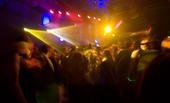au·ral [awr-uhl]
–adjective of or pertaining to an aura.
par·a·dox [par-uh-doks]
–noun
1. a statement or proposition that seems self-contradictory or absurd but in reality expresses a possible truth.
2. a self-contradictory and false proposition.
3. any person, thing, or situation exhibiting an apparently contradictory nature.
4. an opinion or statement contrary to commonly accepted opinion.
A paradox is an apparently true statement or group of statements that leads to a contradiction or a situation which defies intuition. Typically, either the statements in question do not really imply the contradiction, the puzzling result is not really a contradiction, or the premises themselves are not all really true or cannot all be true together. The word paradox is often used interchangeably and wrongly with contradiction; but whereas a contradiction asserts its own opposite, many paradoxes do allow for resolution of some kind.
The recognition of ambiguities, equivocations, and unstated assumptions underlying known paradoxes has led to significant advances in science, philosophy and mathematics. But many paradoxes, such as Curry's paradox, do not yet have resolutions which are accepted by everybody.
Sometimes the term paradox is used for situations that are merely surprising. The birthday paradox, for instance, is unexpected but perfectly logical. This is also the usage in economics, where a paradox is a counterintuitive outcome of economic theory. In literature it can be any contradictory or obviously untrue statement, which resolves itself upon later inspection.
